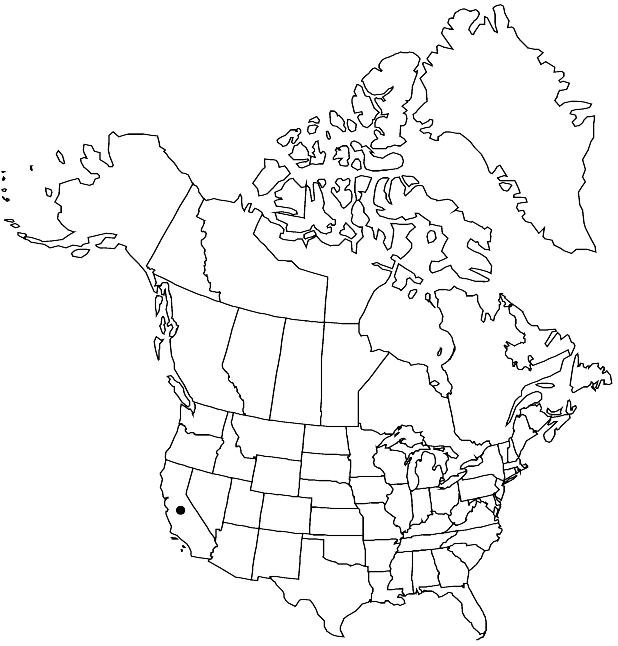Draba cruciata
Amer. J. Bot. 4: 265. 1917.
Perennials; (cespitose, loosely matted); caudex branched (with persistent leaf remains, branches sometimes terminating in sterile rosettes); scapose. Stems unbranched, (0.3–)0.5–1.4(–1.8) dm, often glabrous throughout, sometimes pubescent proximally, trichomes stalked, cruciform, 0.07–0.3 mm, with 3–5-rayed ones. Basal leaves rosulate; petiolate; petiole ciliate throughout; blade oblanceolate to narrowly obovate, (0.4–)0.6–1.1(–1.6) cm × 1.5–3 mm, margins entire or minutely denticulate, surfaces pubescent with stalked, cruciform trichomes, 0.07–0.4 mm, (rarely with fewer, 3–5-rayed ones, sometimes both surfaces glabrous and only margins pubescent, not ciliate, midvein obscure abaxially). Cauline leaves 0. Racemes (3–)5–18(–22)-flowered, ebracteate, considerably elongated in fruit; rachis not flexuous, glabrous. Fruiting pedicels divaricate-ascending, (not decurrent basally), straight, (4–)5–10(–13) mm, glabrous. Flowers: sepals ovate, 1.5–2 mm, glabrous or pubescent distally, (trichomes short-stalked, 4-rayed); petals yellow, spatulate to oblanceolate, 4–5(–6) × 1.2–2 mm; anthers ovate, 0.4–0.6 mm. Fruits narrowly lanceolate to elliptic-lanceolate, plane (not curved), flattened, (4–)6–12(–16) × 1.5–3 mm; valves glabrous or puberulent, trichomes simple and short stalked, 2–4-rayed, 0.03–0.15 mm; ovules 6–10(–12) per ovary; style (0.1–)0.3–0.8 mm. Seeds ovoid, 1–1.7 × 0.8–1.3 mm.
Phenology: Flowering Jul–Aug.
Habitat: Subalpine areas, ridges in pine and fir forests
Elevation: 2500-3100 m
Discussion
Of conservation concern.
Draba cruciata is known only from the Sierra Nevada of Tulare County.
Selected References
None.
